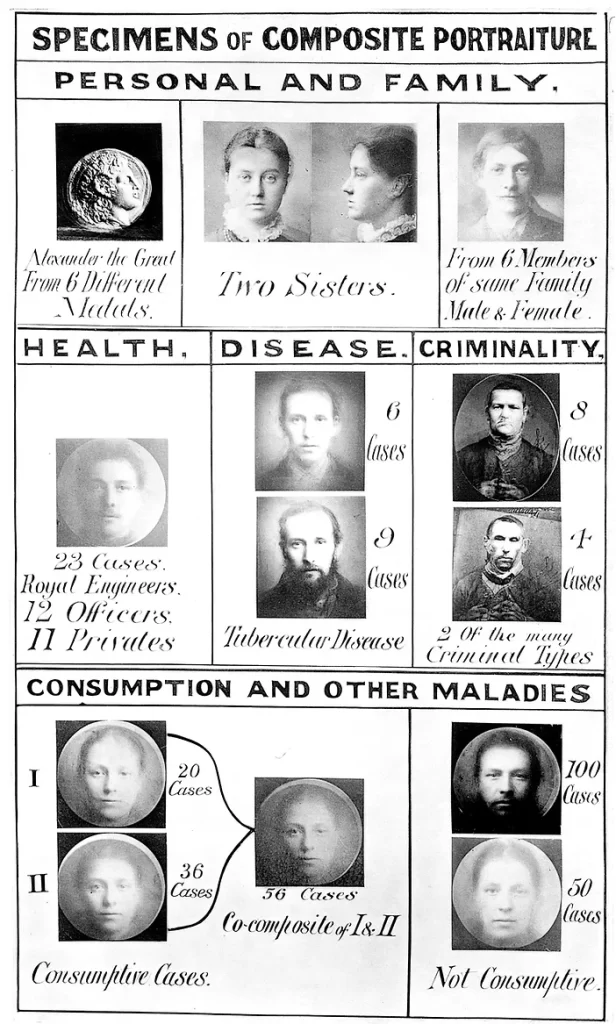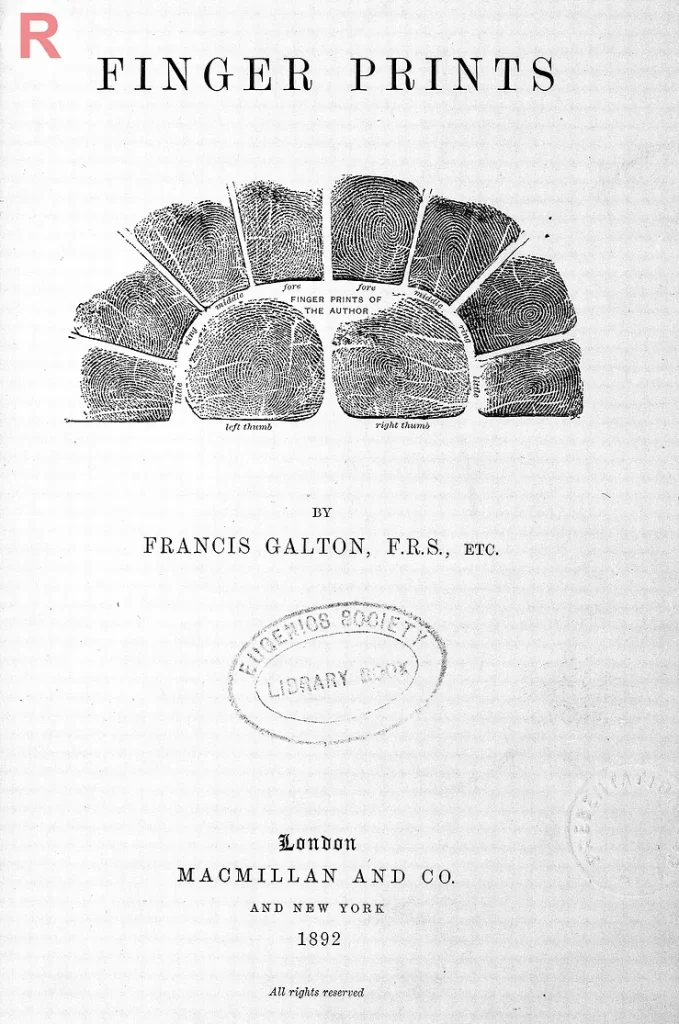In recent months we have seen a wave of renaming initiatives around the world, which have drawn both support and opposition. This piece continues a prior post’s discussion of the legacy of Sir Francis Galton by engaging with the opinions and underlying assumptions of several notable scientists who contested University College London’s decision to rename its Galton Lecture Hall.
This is the second post in a two-part series on Francis Galton by Lunan Zhao. Lunan’s first blog post can be found here.
In recent months we have seen a wave of renaming initiatives around the world, which have drawn both support and opposition. This piece continues a prior post’s discussion of the legacy of Sir Francis Galton by engaging with the opinions and underlying assumptions of several notable scientists who contested University College London’s decision to rename its Galton Lecture Hall. I will unpack the logic of arguments against renaming buildings to foster more open discussions about these assumptions.
Before delving into Galton’s legacy, I wish to highlight the nuances between different renaming initiatives. Each renaming campaign has a distinct background story and social significance. For instance, McGill University’s 2019 student campaign to rename its Redmen varsity teams challenged a team label that facilitated derogative slurs against Indigenous communities throughout the 1900s; Toronto’s June 2020 petition to rename Dundas Street challenges a public landmark commemorating a pro-slavery politician; and Princeton University’s recent decision to rename its Wilson schools challenges an educational institution’s honouring of a former USA president who enforced racial segregation policies “as a benefit to blacks”.[1] In each case the name signified a distinct historical legacy, and activists advocated for renaming for different reasons. I mention these examples to dissuade a lumping together of renaming initiatives.
Specifically, this piece explores a scientist’s legacy and an underlying issue involving science and politics. I will first engage with arguments that imply that scientific legacies are separable from political legacies. Then, I will examine arguments that, while condemning Galton’s legacy, question the political significance of renaming the Galton Lecture Hall at UCL.
This piece argues that the absolute distinction between science and politics is illusory. Drawing this distinction prevents us from posing several interesting questions and subtly censors meaningful discussions. For instance: how does a scientist’s political beliefs influence his or her research methods? In research communities, how did politics shape the intent, resources, and publication of scientific research? In what ways do similar trends exist today and still harm and silence marginalized populations? To what extent does uncritically adopting a scientist’s methods without questioning its ethical framework sustain methodological flaws? Is a scientist’s historical legacy ever static or is it constantly changing in response to present-day discussion?
How does scientific research shape politics?

The Galton Institute, a research organization named after Sir Francis Galton, states that while it “deplores” Galton’s eugenics beliefs that “served to create artificial hierarchies and division between peoples of different class, ethnicity and culture,” it “believes that Galton’s contribution to modern science deserves to be recognised”.[2] Its president, Veronica van Heyningen, elaborated on this idea:“we feel that you can’t just brush the achievements of a person like that totally under the carpet because of the coining of the term eugenics and being – as were many, many people in those days – in favour of eugenics. I think it’s well accepted that he was a racist, but again, a lot of people in those days were racists.”[3]
Interestingly, this argument assumes that scientific research and political change advances in a certain way, while overlooking questions that I wish to bring into focus.
How does political change progress?
Firstly, van Heyningen’s argument assumes that opinions about racism were homogenous “in those days.” Perhaps they were in certain populations, but would individuals in Africa or Asia have agreed with Galton about his views on race? The argument also avoids discussing how political beliefs in Britain have changed from a time when it was widely accepted that certain people “were racists”. It ignores the role that Galton’s scientific research may have played in shaping his society’s political beliefs.
Perhaps this line of thinking assumes that society becomes more inclusive naturally. Does it? Or does political progress advance through respectful debate and mutual understanding between different individuals? If inclusivity evolves through honest discourse, what role did Galton play?
The morality of Galton’s research should not solely be assessed according to the beliefs of his peers; it should be assessed based on how willing he was to openly discuss and question how his political beliefs shaped his research.

My previous article lists several examples of Galton using his research politically to proactively justify horrendous imperial killings, like those of Indigenous populations in North America. Galton’s research was never meant to be apolitical; it intended to advance his beliefs of white superiority and the inferiority of other races, which he often publicized.[4] In doing so, Galton avoided dissenting views and evidence that challenged his sense of class and racial superiority. For instance, when he encountered contrary evidence to his belief that African fingerprints would be less sophisticated than European fingerprints, instead of questioning his racial beliefs, Galton funded further medical research to find other supporting evidence.[3] With his wealth and academic prestige, he actively chose to value research that would support a medical basis of racial and class differences, rather than fund research that would falsify beliefs of a racial hierarchy.
How does scientific research progress?
The second, perhaps more sensitive, assumption is Galton’s specific role in the advancement of medical research. Returning to the Galton Institute’s quote that it “believes that Galton’s contribution to modern science deserves to be recognised,” I wish to pose a question at the core of the history of science. To what extent are the contributions of individual scientists, like Galton, necessary to the advancement of scientific knowledge? The above quote assumes that Galton was absolutely crucial, implying perhaps that without him, biostatistics would not have advanced in the same way. Is that true?
Challenging this assumption is not questioning Galton’s intellect or his hard work, it is delving into deeper reflections (beyond the scope of this piece) about how and why scientific communities commemorate pioneering researchers.
To offer a brief example for further reflection, I will reference one branch of medical research pursued in Germany during the Nazi regime. Many have noted that scientists during Nazi Germany made huge advancements in medical knowledge, at the expense of dehumanizing and harmful treatment of human bodies. Alan Wells of the American Medical Association is quoted as saying: “during the 1930s, the German medical establishment was admired as a world leader in innovative public health and medical research”.[5]

For instance, German researchers had discovered that asbestos causes lung cancer during the 1940s, yet the medical establishment in Britain and America did not reach a consensus on the issue until the 1960s, when scientists there independently developed research techniques to find similar results.[6] This example draws attention to an inconsistency in how the relationship between politics and medicine is understood. Many researchers today would feel uncomfortable endorsing the medical innovations of Nazi researchers. Why, then, do many scientists actively endorse the medical innovations of eugenics researchers like Galton, who endorsed the horrendous killings of imperial regimes (such as America’s murdering of Indigenous populations and European nation’s brutal oppression in African nations)?
Perhaps as colonial and decolonial histories are learned and discussed more, the political implications of medical researchers like Galton will become clearer. Recent articulations include the 2012 court case holding Britain’s colonial government in Kenya responsible for mass tortures and killings in the 1950s or the Canadian government’s 2015 completion of the Truth and Reconciliation report, acknowledging officially the nation’s policy of systematically exterminating Indigenous cultures during the 1900s.
A final question for us to ask is how far an individual can help to steer a field of research. Would the field of eugenics – perhaps under a different name – have developed in quite the same way without Galton?
Conclusion: Why do we rename buildings and remove statues if it does not change the past?
In closing, I would like to visit one last argument against renaming the Galton Lecture Theatre. According to Professor Stephen Stigler of the University of Chicago’s Department of Statistics,“going along looking for names on buildings is a pretty weak thing to be doing. Trying to pretend the past didn’t exist is less productive than acknowledging it and coming to terms with it.” Veronica van Heyningen, president of the Galton Institute, echoes a similar sentiment: “I have no problem with them renaming the Galton Lecture Theatre or the Pearson Building for that matter, or whatever, but I don’t think it solves the problem. It doesn’t help keep the disturbing aspects of history in our sight. We mustn’t forget this history.”[3]
A first assumption to ponder is what exactly named buildings, such as Galton’s Lecture Theatre, or statues signify. For UCL, the Galton name signified respect for a scientist’s research and an acknowledgement of a financial donation. For an individual who belongs to the race Galton deemed as superior, perhaps the statue signifies a scientific lineage of innovation. For an individual Galton deemed racially inferior, perhaps it represents a reminder of ongoing systemic dismissal.
The main assumption to question is whether there is an “objective” or “neutral” gaze of a building or statue, or if our own social identities shape how we perceive them. If we understand history as a dynamic map of our shared past, rather than as a static chronology of inevitable progress, then we realize that each articulation of our past, signified by the individuals we memorialize and our way of doing so, reshapes what our history is.
Written by Lunan Zhao
References:
1. https://www.theatlantic.com/politics/archive/2015/11/wilson-legacy-racism/417549/
2. http://www.galtoninstitute.org.uk/history/eugenic-past/
3. https://rss.onlinelibrary.wiley.com/doi/pdf/10.1111/j.1740-9713.2019.01275.x
4. http://galton.org/letters/africa-for-chinese/AfricaForTheChinese.htm
5. https://www.theguardian.com/news/2004/oct/14/thisweekssciencequestions.cancer





